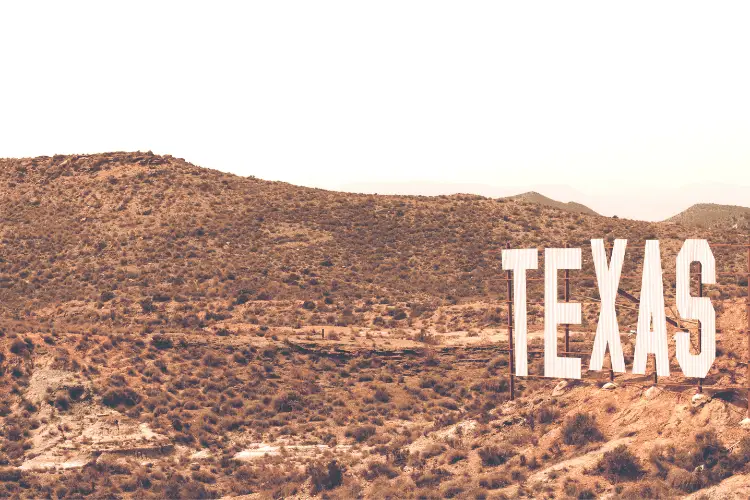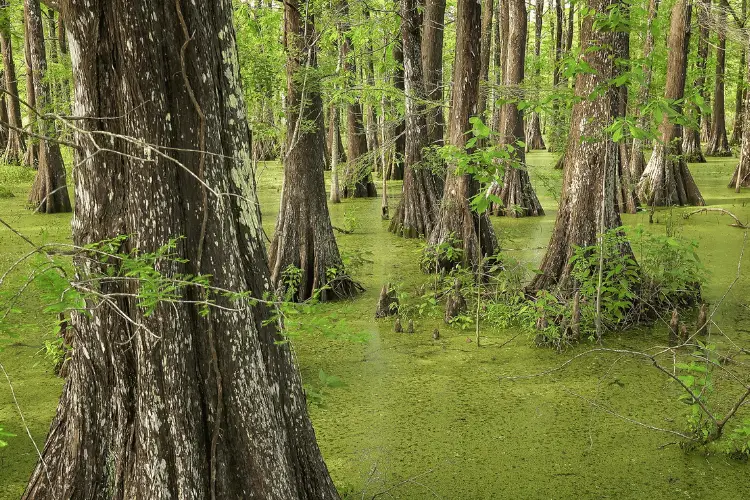We strive to provide you with authoritative, trustworthy, and expert advice. In doing so, the staff at texaswalkabout.com performs extensive research, editing, and fact checking to every post on this webiste. If you feel that this article can improve, please feel free to reach us at staff@texaswalkabout.com
Texas is one of the largest states in America and is known for its incredibly rich culture and history. However, one thing that has always fascinated many people is the word “Texas” itself, and where it comes from, which drives many people to wonder “what does Texas mean?”
The most popular story, according to Historians, is that “Texas” is derived from the Caddoan word “Tejas”, which means “ally” or “friend”. The word was adopted by the
Spanish settlers who arrived in the region in the late 1600s.
While this is what we were always taught in school and the first answer you’ll get from any Texan you ask, it turns out that there is much more to the story than that!
In today’s article, we’ll take a closer look at the meaning of the word “Texas” and the alternative background stories behind our state’s name!
What Is the Meaning of the Word “Texas”?
One thing that we know for certain is that the word “Texas” is derived from words used by Native Indians. Here’s a quick look at the different meanings of the word “Texas”:
Friend or Ally
As previously established, if you ask any Texan about the meaning of the word, they’ll immediately tell you that it means “friendship”, and they would be correct!
Texas is a state known for its friendly nature and strong sense of community. In fact, the roots of the state’s friendly reputation run deep, all the way back to the early establishment of Texas and even beyond that.
According to the Texas State Historical Association The word “Texas” is derived from the word “Teycha”, “Tasha” or “Tayshas”, which was used by many native tribes that used to inhabit the region.
While the original meaning of the word is not confirmed, most documents believe it’s from the Caddoan language and means “Friend”.
The Caddo were a confederacy of Native American tribes who used to live in present-day East Texas and parts of Oklahoma when the early Spanish missions arrived in the Americas.
The same report also mentions that the same word was used by other tribes to describe allying groups fighting against the Apaches, which is why some historians like Jesus Maria believe that that word also meant “ally”.

Friendly Greeting
The Caddo weren’t the only people who used the word “Teycha”. However, other tribes didn’t necessarily use it to describe friends or friendships.
For example, other groups like the Hasinais (Asinay) used the term as a form of friendly greeting rather than describing themselves. In other words, they used the word to say “Hello, friend”.
Other Less Popular Meanings
While most historians associated the meaning of Texas with friendship and friendliness, there are other historians who claim that “Texas” has different meanings.
Among the commonly mentioned meanings are “paradise”, “land of flowers”, “thatched (tiled) roofs”, and more.
However, these claimed meanings have little to no evidence supporting them, especially when compared to sources that confirm the common meaning.
How Texas Got Its Name
Now that you know what the word “Texas” means, you might be wondering how it ended up becoming the name of our beloved state. In this section, we’ll take a closer look at some of the common backstories behind that name.
The Popular Backstory: Spanish Missions and Contact with the Caddo
The most common backstory of how Texas got its name comes from the previously mentioned Caddo tribe that inhabited the region in the late 17th century. During that time, the Spanish expeditions and missions reached what is now East Texas, led by Friar Damian Massanet.
During his encounters, the Caddo described themselves as “Teychas”, and even called Massenet “Teycha”, referring to him as a friend.
As a result, Massanet used that word to describe both the land and its people in his manuscripts and letters.
However, Massanet used the old Spanish alphabet and wrote it as “Texas” instead of “Teychas”, pronouncing the “x” as “ch”. However, orthographers would later read it as “Texas” with the pronunciation we know today.
That name stuck when Massanet met the Chief of the Nabedaches and mistakenly called him the ruler of the “Kingdom of the Teychas (Texas)”.
Throughout the years, other explorers will also name that region “Texas” in their literature, which eternalized the name.
The region of Texas was a part of Mexico until its independence in 1836 and the rise of “The Republic of Texas” before it was admitted to the Union as the 28th state.
The conclusion was reached by American historian Herbert E. Bolton, based on transcripts of Alonso de Leon’s and Fray Damian Massanet’s expeditions.
The Alternative Story: Bald Cypress Trees
Although the previous story is the most popular theory behind the meaning of Texas and how it got its name, a Spanish historian and archeologist is challenging it.
According to Jorge Luis Garcia Ruiz, who released a book titled “Texas: The false origin of the name”, the land of Texas was called “Texas” long before the Spanish missions arrived.
In his book, Garcia Ruiz mentions that the state of Texas is actually derived from the word “texa” or “texo”.
Based on an old 1495 dictionary, “texa” is a word from old Spanish that was used to describe a unique species of tree that used to grow in Spain.
Although that tree doesn’t grow in Texas, he argues that Friar Massanet used the term because the local bald cypress trees share a lot of similarities with the tree, which caused the mixup.
In other words, according to this theory, the word “Texas” was used to describe the richness of yew-like trees in the region and isn’t derived from “Teycha” or “Tasha”.

How The Meaning of Texas Influenced the State
The word “Texas”, regardless of its origin, is a living embodiment of the state’s rich and varied history.
It is a word that describes the interaction between all the different cultures that have shaped the state as we know it today, from the Native American tribes who first inhabited the land to the European explorers and settlers who arrived later.
The association of the word Texas with friendship and alliance is also befitting of the state’s motto of Friendship.
Texas is a place where people from all walks of life have come together to build a new home, housing people from a huge variety of cultures.
The word “texas” is a reminder that all Texans are connected and are all part of a larger community where everyone has a role to play in shaping the future of the Lone Star State!
What Did the Native Americans Call Texas Before It Was a State?
Unfortunately, there are no surviving records of what Native Americans used to call Texas before it was declared a state.
However, you should keep in mind that Texas is gigantic and much bigger than many present-day countries.
In fact, Texas was home to a huge variety of tribes and confederations, each with its own languages and laws, so there wasn’t a collective name that describes the entirety of Texas.
With that being said, many Native American tribes used to call their land “Turtle Island”, which is derived from the creation story of earth, according to the many people of Northeastern America.
Was Texas Called “The New Philippines” in the Past?
As previously mentioned, the word “Texas” is quite old and has been used to describe that region for the majority of its recent history.
However, before Texas got its name officially, it was actually called the “New Philippines”, although not officially.
According to the Texas State Historical Association, “Nuevas Filipinas” was a secondary name given to the land of Texas.
This is because the Spanish had been colonizing the Philippines for centuries during that time and had plenty of experience managing them and converting indigenous populations through missionaries.
They hoped that, by referring to Texas as the “New Philippines,” they would be able to replicate their success there. However, the name never caught on as fast as “Texas”.
Most Common Nicknames of Texas and Their Meanings
We all know that Texas’ official nickname is “The Lone Star State”, which is influenced by the official state flag. However, the state also has several other non-official nicknames and monikers, such as:
- The Jumbo State: This one is based on the old saying that “Everything is bigger in Texas”. Additionally, Texas is the second largest state in America.
- The Beef State: With 12.7 million cattle heads in the state (14% of the total U.S. cattle production), the name is pretty self-explanatory.
- The Blizzard State: This one is based on the frequent windstorms that hit the state
Final Thoughts
This wraps it up for today’s guide that answers the curious question “What does Texas mean?”
As you can see, Texas is derived from various meanings, but the most popular ones are friendship and alliance, which go in line with the state’s motto.
Regardless of the origin of any term, the meaning of a word is not fixed. Instead, it is determined by the way that people use it.
For that reason, even if the word “Texas” has other meanings, it’ll always mean “friendship” to Texans!

Robert is a native Texan writer for TexasWalkabout, passionate about Texas culture and food, wearing cowboy boots daily. He interviews local pitmasters and chefs, tastes and reviews innovative dishes, and explores hidden gems and iconic landmarks. Graduating magna cum laude in Cyber Security from the University of Texas at San Antonio, Robert excels academically and professionally while also being knowledgeable in Texas history and culture. After living in Texas for over 28 years, he provides first-hand and trustworthy information for all your Texas needs!

